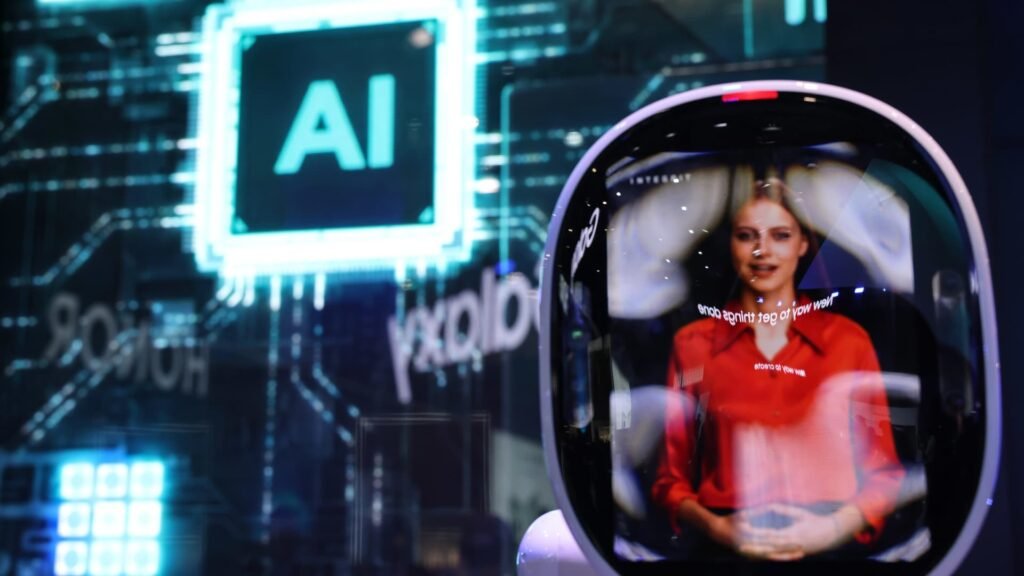An AI assistant showcased during Mobile World Congress 2024 in Barcelona.
Angel Garcia | Bloomberg | Getty Images
Artificial intelligence is transforming the advertising sector, causing unease among investors, according to a prominent industry figure speaking to CNBC.
“This AI disruption is making investors anxious across various sectors, and it’s significantly altering our industry,” stated Mark Read, the soon-to-be former CEO of British advertising company WPP, during an interview with Karen Tso on Tuesday.
The advertising industry faces challenges from new generative AI tools that can quickly produce content. Recently, AI image generators like OpenAI’s DALL-E, Google’s Veo, and Midjourney have gained popularity.
In his initial interview since announcing his resignation from WPP, Read remarked that AI will “completely transform our industry.”
“AI will make the world’s expertise available to everyone at very low costs,” he mentioned at London Tech Week. “The most skilled professionals—be it lawyers, psychologists, radiologists, accountants, or even the best advertising creatives—are likely to be powered by AI.”
Read revealed that 50,000 employees at WPP currently utilize WPP Open, the company’s AI-driven marketing platform.
“I see that as part of my legacy,” he added.

According to Read, structural challenges in the creative sectors of advertising are prompting companies to consolidate and adapt to the influence of AI, which affects everything from drafting briefs to optimizing campaigns.
A report by Forrester, published last June, indicated that over 60% of U.S. ad agencies are already employing generative AI, with an additional 31% exploring its potential applications.
‘Significant Transformation’
Others share Read’s perspective. Maurice Levy, CEO of French advertising giant Publicis Groupe, discussed the “significant transformation” occurring in the advertising space due to AI in an interview with CNBC at the Viva Tech conference in Paris.
He mentioned that AI-driven image and video production tools are rapidly increasing content creation efficiency, while automated messaging can now achieve unprecedented levels of “personalization at scale.”
However, Levy emphasized that AI should be viewed as a tool to enhance human capabilities.
“AI should never be mistaken for anything beyond a tool,” he clarified.
While acknowledging that AI may displace certain jobs, Levy believes it will ultimately generate more new jobs than it eliminates.
“Will AI replace me and eliminate some roles? Yes, it will,” Levy admitted. “But more importantly, AI will redefine roles and create new opportunities. So, the overall outcome is likely to be beneficial.”
This aligns with historical labor trends following major technological developments like the internet and smartphones.

“We will see more autonomous tasks,” Levy continued.
Despite this, Nicole Denman Greene, an analyst at Gartner, cautioned that brands need to be careful not to provoke a backlash from consumers wary of AI’s effect on human creativity.
A September Gartner survey revealed that 82% of consumers believe companies utilizing generative AI should focus on protecting human jobs, even at the cost of reduced profits.
“Shift the focus from what AI can do to what it should achieve in advertising,” Greene advised CNBC.
“Its purpose should include generating groundbreaking insights, executing unique strategies for diverse and niche audiences, pushing the limits of traditional marketing, and delivering highly personalized and relevant brand experiences, fulfilling the promise of hyper-personalization.”


